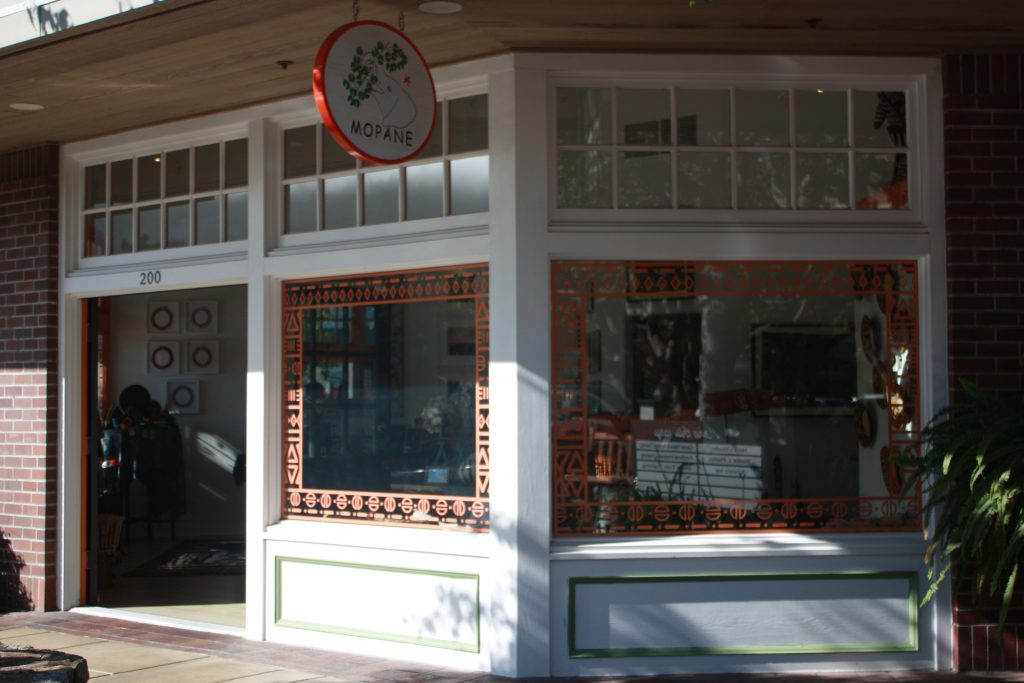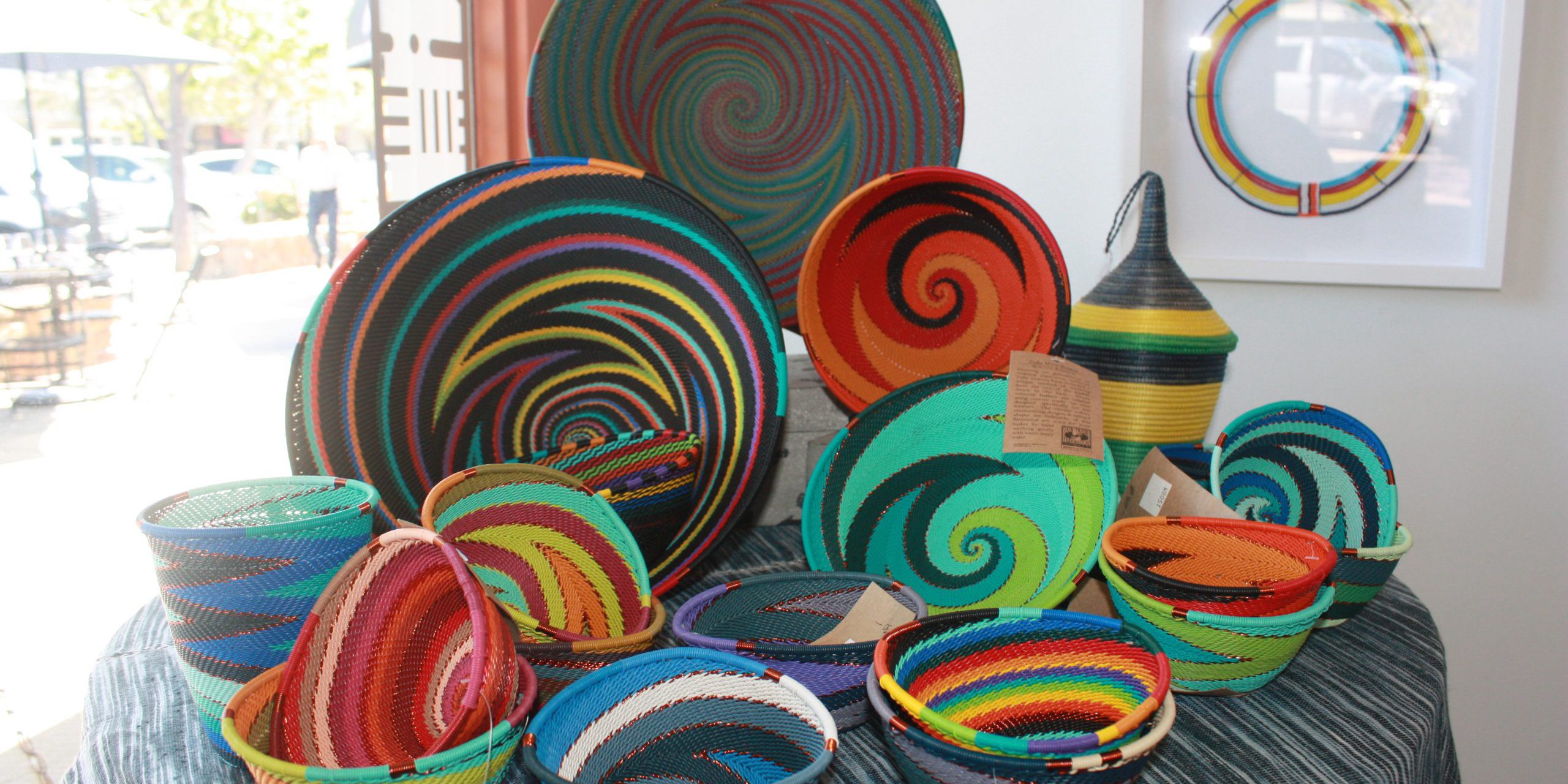What Mopane & Baby Elephants Have In Common
Mopane: Ethnographic African Arts Gallery
This for-purpose company stays local for its large beneficiaries. For Susie Bauer, a fateful trip in 2019 to a friend’s Botswana elephant orphanage forever entwined her with Africa. “(The baby elephant) was like a big Great Dane!” Bauer laughs. Her enthusiasm is contagious as she explains her interaction with the single gentle giant that used to inhabit the Elephant Haven Orphanage owned by her longtime friend, “They really do want to sit in your lap and kiss you… It was just too much.” And it turns out that Bauer’s encounter would be a lasting one.
Energized by her experience, Mopane was born as a means to support the elephants that touched Bauer’s heart but has evolved into a major fair-trade community. “In South Africa, mopane is the tree of life. It’s what the elephants eat, it’s what the people eat…” explains Bauer, and her company strives to be nourishment for the people and communities of South Africa.
Mopane’s stock of South African goods are ethically sourced and all proceeds funnel directly back to the cooperatives that produce them. Bauer continues to look for local non-profits lacking large, sustainable funding sources, a tiresome but necessary task with the limitless potential of this willing community of workers.
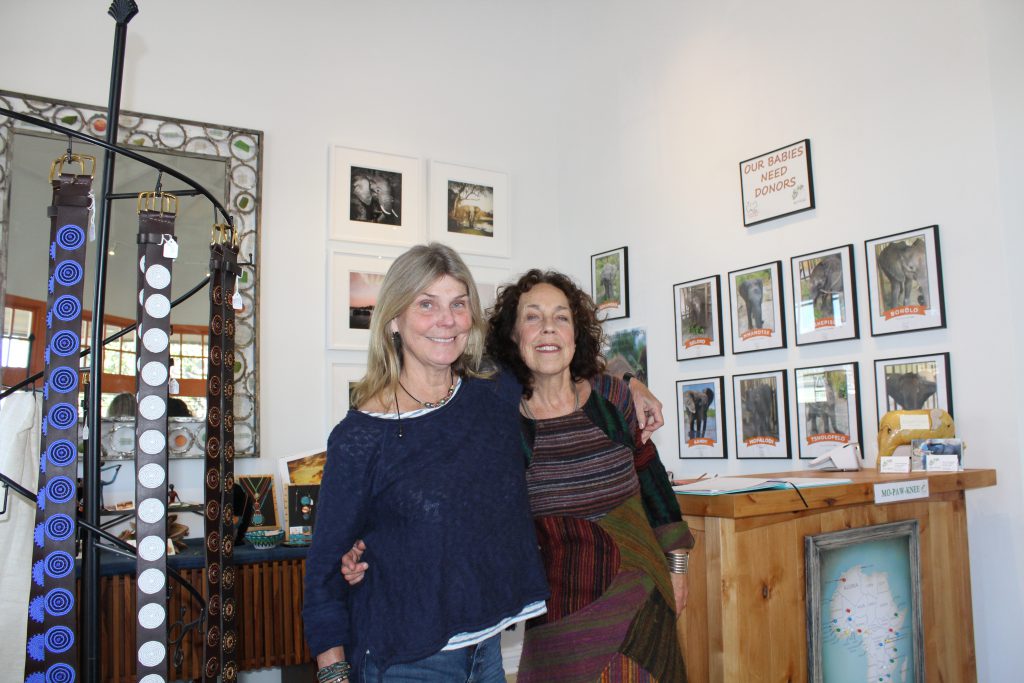
What was your experience with Elephant Haven Orphanage and how has it affected you?
“I went in 2019 to help my friend who owns (Elephant Haven Orphanage) … You hear the stories of how (the elephants) are rescued and it breaks your heart. In many cases, poachers get the mother because of the tusks, and they leave the babies to starve to death.” Indeed, “30% of Africa’s elephants have been lost since 2007, leaving behind thousands of orphans” (Mopane – Fair Trade for Purpose, 2022).
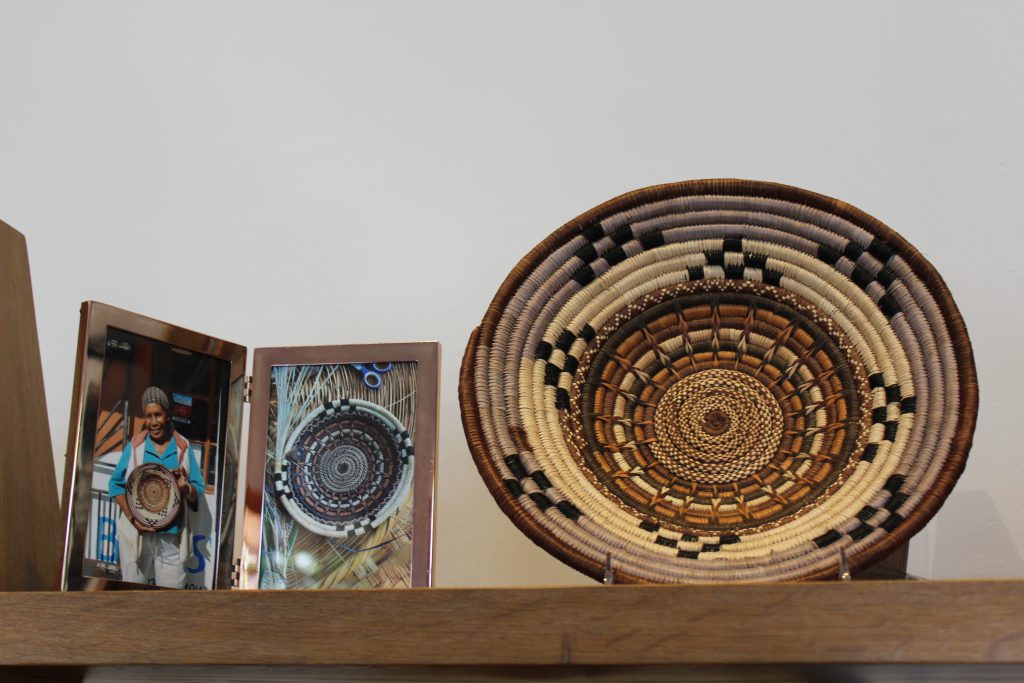
What progress have you seen as a result of your organization, Mopane?
After the pandemic, Bauer quickly realized that there was more at stake than the elephants.
Elephant Haven now supported a community of workers, “they don’t just care for the elephants, they provide jobs for all (the employees) and their families, and (Mopane) provides jobs for all these women’s cooperatives all over Africa. But what it really does is present a kind of way of making a community,” explains Bauer, “if the workers need water in the village, money will go towards digging them a well.”
“My husband bought a school bus last year because we discovered that children were walking miles every day on a highway to get to school.” Bauer and her husband not only bought the school bus, he drives it. “150 children in that district weren’t going to school and now they are.” For Bauer this kind of direct, tangible impact is what keeps her moving forward and fuels her quest to grow Mopane.
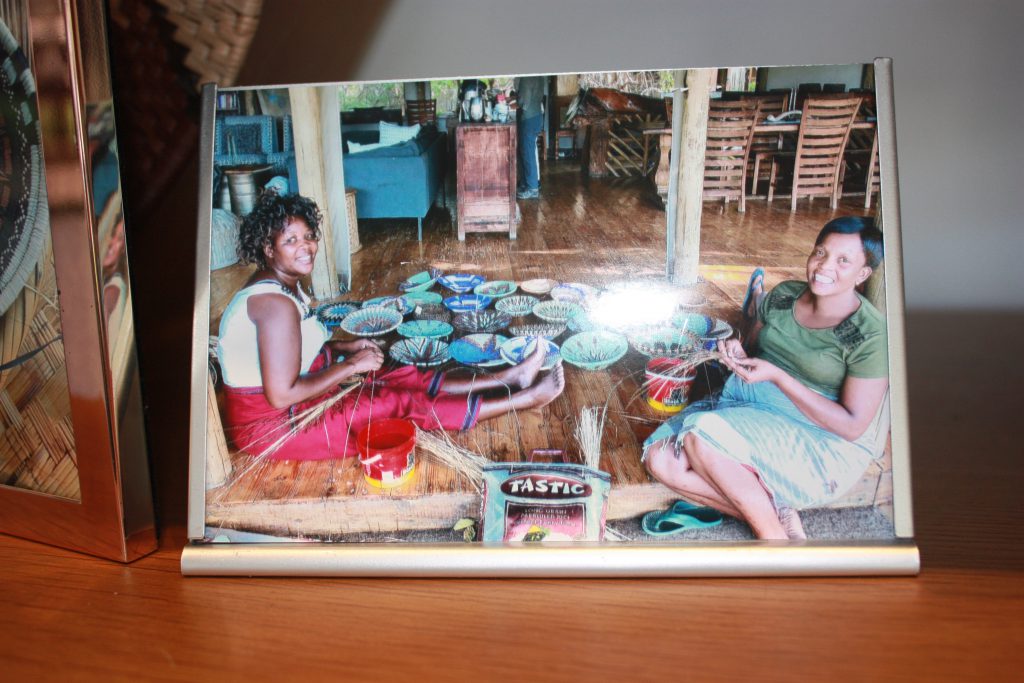
How does Mopane currently operate, and which products are you most excited about?
Mopane is a family affair, along with her husband, Bauer’s daughter shuttles around the world bringing suitcases of products to the store to sell for their charities. The family is always looking to make connections with vendors who are able to add to their cause and they make lasting friendships along the way.
Mopane, mirroring its namesake’s inherent sustainability, ultimately aims to stay as local to Botswana as possible, growing their fair-trade community; a feat that helps both the people and the elephants. “The Fair-Trade economy lifts people out of poverty, creates healthy communities, and directly benefits native animal species by reducing the need to monetize them” (Mopane – Fair Trade for Purpose, 2022).
“I’m just hoping customers come in and say, ‘my daughter’s in this group and they’re always trying to raise money,’ things like that, I really want to be small and local and dependent on donations rather than big funding.”
From her local inventory, Bauer is most excited about Mopane’s collection of mud cloth, and although it doesn’t have to be elephant oriented, they are artfully adorned with dark, textured elephants; something that will always bring a smile to Bauer.
“It’s working,” exhales Bauer, “I know we are doing so much good…I go to bed every night with a smile on my face,” she beams, it’s a smile won by hard work, a testament to her good deeds, small deeds to Bauer, something she says we can all do and will effect the most change.
You can visit Mopane at 200 Crossroads Blvd. Carmel, CA 93923
